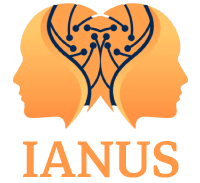The definitions of ‘research integrity’ and ‘research ethics’ often intertwine and may appear to overlap. Still, a clear distinction between the two can help us understand how each can relate to good research practices and fostering of trust in science.
Historically, research ethics and research integrity operated as distinct domains, but they have become increasingly intertwined in recent times. Initiatives from the European Commission, such as the EnTIRE and VIRT2UE projects, seek to address both research and scientific integrity. One can interpret the distinction between the two in terms of how they tend to operate. For example, research ethics generally concerns the planning and design of a project, while research integrity emphasizes how the research is actually conducted.
Research ethics, a branch of applied ethics, examines the moral challenges emerging from research activities and outlines principles for responsible research conduct. At its core, research ethics prioritizes the protection of research subjects, both human and animal. In human research, for example, this involves ensuring respect for participant autonomy, voluntary participation, and the procurement of informed consent. A fundamental tenet of research ethics is safeguarding participant privacy and ensuring the confidentiality of research data.
Systems for ethical review, such as research ethics committees (REC) or institutional review boards (IRB), have been instituted to uphold these principles. Currently, many academic journals and research funding bodies necessitate approval from these committees.
Research integrity, on the other hand, is rooted in professional ethics. It emphasizes the ethical standards intrinsic to the researcher’s profession. Institutional rules fortify it further, stipulating specific guidelines. For instance, researchers are expected to uphold honesty, refrain from falsifying, fabricating, or plagiarizing data, and sidestep conflicts of interest during peer-review processes.
Recently, we have seen a trend of developing codes of conduct for Research Integrity. These can merge guidelines for both individual scientists and their affiliated institutions. Depending on where they are applied, these criteria can also be set by professional societies or associations, like the “Code of Ethics and Conduct” of the British Psychological Society. They might also be established at national levels, like the Netherlands Code of Conduct for Academic Practice. Regional examples include the European Code of Conduct for Research Integrity, while global efforts are led by initiatives like those from the World Conference on Research Integrity (WCRI).
While some scholars view ‘research integrity’ as the broader category, others use ‘research ethics’ as the encompassing term, especially when using it to point to a distinct academic subfield (like bioethics or environmental ethics). When ‘research integrity’ is perceived as the more comprehensive term, it typically indicates the ideal ethos that researchers should embody. Essential to this ethos is the characteristic of having ‘integrity.’
For ethical research practices, both domains are crucial, and their relevance is based on the research’s stage and trajectory. While one should always exercise caution and not place blind trust in scientists, it is imperative to establish a foundation of trust when constructing frameworks for research ethics and integrity. Scientists should be perceived not merely as potential transgressors, but as professionals deeply familiar with ethical standards and committed to upholding professional ethics. Trust and cooperation are indispensable elements for the effective conduct of scientific research.
